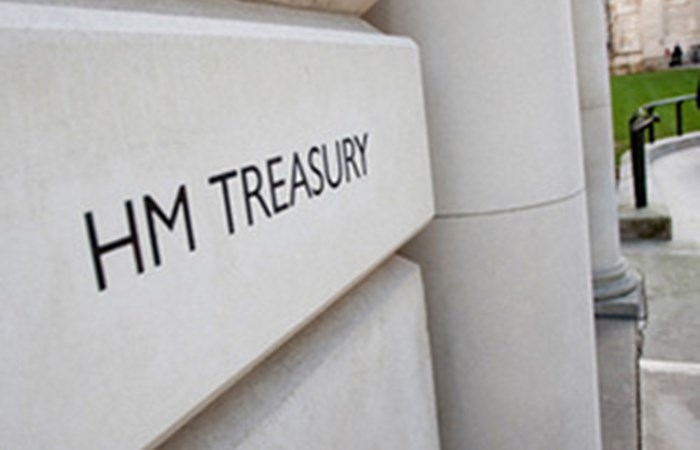HM Treasury

The review, which will be published on 25 November 2015, will set out how the government will both invest in priority public services and deliver the 20 billion further savings required to eliminate Britains deficit by 2019/2020.
With the fastest-growing economy in the G7, and employment at near-record levels, the Chancellor is clear that now is the time to finish the job of fixing the public finances.
Spending Review 2015: A country that lives within its means. The governments approach to Spending Review 2015.
At the Summer Budget, the Chancellor took the first step towards finishing that job, setting out how the government would ensure Britain runs a surplus for the first time in almost twenty years in 2019/20, delivering economic security for working people.
We set out how 12 billion savings from welfare and 5 billion from addressing avoidance, evasion and imbalances in the tax system will deliver half of the savings needed to eliminate the deficit, over the next four years.
Today the Chief Secretary will write to government departments asking them to draw up plans to deliver the remaining required consolidation (20 billion).
The letters will ask departments to model two scenarios of 25% and 40% of savings within their resource budgets by 2019-20 in real terms. These are the same reductions requested ahead of the Spending Review of 2010.
In making these savings, the Spending Review will also reaffirm the governments commitment to invest in the NHS and our national security, while protecting spending on schools and honouring our commitment to the poorest people in the world.
In order to protect these areas of spend, we will need to make large savings in other areas.
The government is clear - it can achieve this while maintaining the public services people rely on, because its done it before.
By 2015/16 the government will have made savings of 98 billion and at the same time the performance of, and the publics satisfaction with, many public services have continued to improve:
- satisfaction with the NHS is at its highest for years, and dissatisfaction is at its lowest ever
- crime in England and Wales has fallen by more than a quarter since June 2010 and public confidence in the police is up
- number of pupils taught in good or outstanding schools has increased by over a million since 2010
Building on the reforms we have made to public services, including the welfare state, the Spending Review will deliver an ambitious reform programme and devolve more power and services to local areas, to rebalance our economy.
The government will go further to maximise efficiencies and get the best value for money for taxpayers in all areas of public spending, including by asking departments to identify, for the first time, how they will help to achieve the governments target of disposing of public sector land for at least 150,000 homes by 2020.
Since 2010, the government has been revolutionising the use of its property, reducing the size of its estate, getting out of expensive buildings that it no longer needs and releasing surplus public sector land.
Over the past five years, central government alone has reduced its estate by 2 million square metres. Thats equivalent to 27 Buckingham Palaces, generating running cost savings of 800 million, with over 1.7 billion raised in receipts from sales. Over 2000 individual properties were vacated more than one per day.
This helped government meet its target to sell surplus land with capacity for 100,000 homes in the last Parliament.
But taxpayers still own over 300 billion worth of land and buildings (latest Whole of Government Accounts: 13/14), with the Ministry of Defence alone owning approximately 1% of all UK land (227,300 hectares and roughly equivalent to 318,347 football pitches).
As part of the Spending Review, departments will set out how they will meet their share of contributions to this target.
Chancellor of the Exchequer, George Osborne said:
This Spending Review is the next step in our plan to eliminate the deficit, run a surplus and ensure Britain lives within its means.
Well invest in our priorities like the NHS and national security. Elsewhere in government, departments will have to find significant savings through efficiencies and by devolving power, so people have a greater say over the issues that affect them and their communities. Well deliver more with less.
The Spending Review will be set out on 25 November. Creating a strong and stable economy is the best way to support working people.
